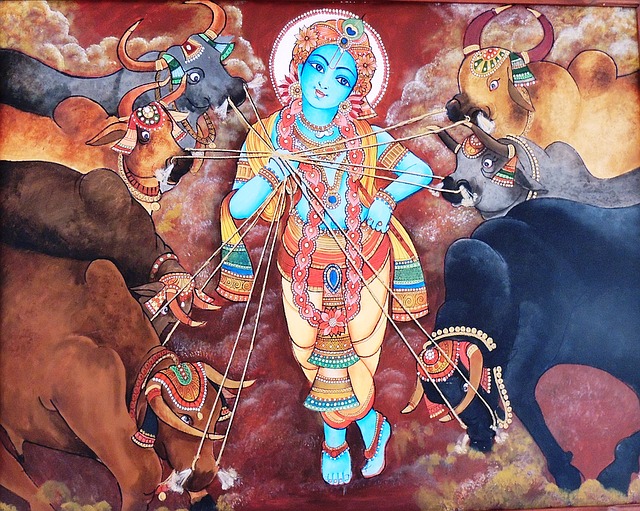 Submitted by Krishna on
Submitted by Krishna on
 pixabay.com
pixabay.com
In the Bhagavad-gita Krishna states that He comes to this world whenever there is a rise in irreligion and a decline in religion. He comes to re-establish religious principles, annihilate the miscreants, and protect the devotees.By the phrase "rise in irreligion," Krishna indicates that irreligious activities such as meat eating, illicit sex, intoxication, gambling, and Godlessness in general are widespread. In the modern age, we not only find the majority of the populace performing these irreligious acts, but the government and leaders in general are encouraging irreligion.
One who performs irreligious acts is breaking the laws of God, which are immutable. Modern theologians very enthusiastically declare that religious principles must be changed or adapted to meet the changing conditions in this world. But God does not see things this way. He holds one responsible for breaking His laws regardless of what excuse one may offer, or what theologian one may quote.
In this age of Kali (quarrel) Krishna appears as His Holy Names: Hare Krishna Hare Krishna Krishna Krishna Hare Hare, Hare Rama Hare' Rama Rama Rama Hare Hare. Simply by worshiping Him by chanting these names, one can attain all spiritual perfection and be freed from the influence of this dark age.
1. Bhagavad-gita 4.7
2. Bhagavad-gita 4.8
In the Bhagavad-gita Krishna explains the four types of persons who reject Him, as well as the four types of persons who approach Him.
The types that reject Him are: 1. The man who works like an ass and tries to enjoy like one, forgetting God completely, 2. Someone who is not even civilized enough to think of God, 3. Someone who is caught up in the pursuit of mundane knowledge, and 4. The out and out atheist who is determined never to worship God and attempts to convert others to his view point.
God is approached by those: 1. Desiring relief from distress, 2. Desiring knowledge, 3. Desiring wealth or other material benefits, and 4. Who are inquisitive or curious. Of course these are mixed.motives, but ultimately one will be purified of these if one sticks to the spiritual path.
"Pure love of God" means that one simply wants to please God, and one is ready to sacrifice his own happiness to accomplish this end. When one feels this way, he experiences the greatest happiness. Pure love of God is the greatest gift that God can give.
1. Bhagavad-gita 7.16, 7.19
Many transcendentalists attempt to escape the miserable conditions of this world by approaching God. Unfortunately, many of them think that the highest realization of God is His energy. Thus, they realize the eternal aspect of the Lord, but never get to enjoy the knowledge and bliss that accompany personal realization.
Impersonalists often speak of God as "The Light" or "The Force", but these (the light and the force) are His energies. God is a person, the controller and proprietor of these energies, and when the impersonalists seek to merge with His energies, they miss the joy of a personal relationship with Him. The impersonalist thinks that by losing his personality in "oneness" with God he will find relief from suffering; but the devotee knows that the soul's individual identity is never lost. By having a spiritual relationship with the Lord, the individual soul will discover, and be able to express his real personality, experience complete satisfaction, and be free from all suffering.
The soul is by nature active and pleasure seeking; therefore, in the unnatural situation of impersonal realization, the soul is dissatisfied, and again falls down to this world, attempting to enjoy the material variety, being unaware of the spiritual variety that a devotee enjoys in the association of the Personality of Godhead, Krishna.
The sun is the energetic source of the sunshine ,(the energy). The energetic is comparatively more important than its energy. In the same way the devotees recognize Krishna as the energetic source of all energies. The devotees worship the energetic (Krishna) rather than His energy, and reject the idea of merging into His energy.
Victor Epand
For more Krishna conscious philosophy, please visit http://www.BKGoswami.com/.
- 878 reads